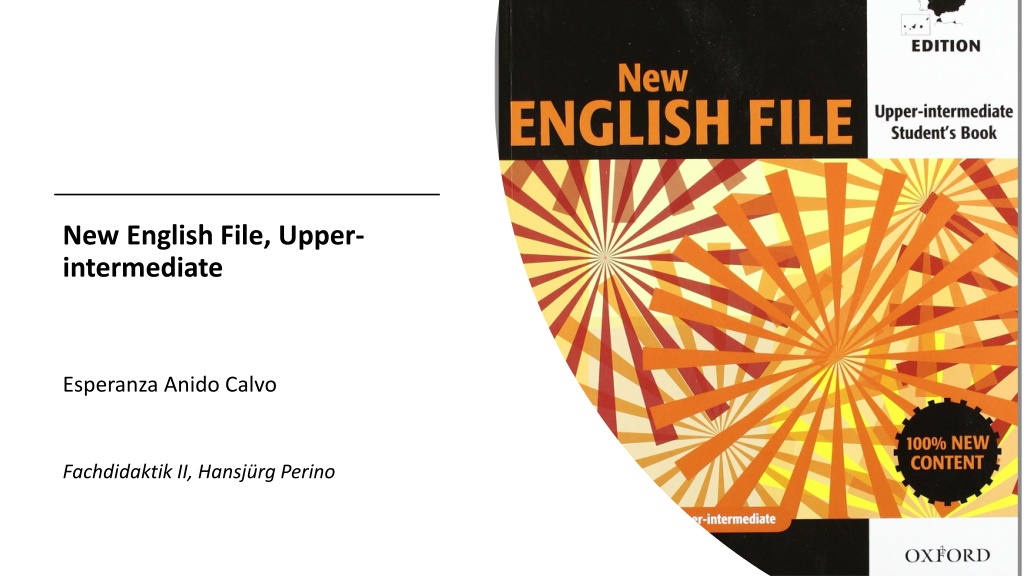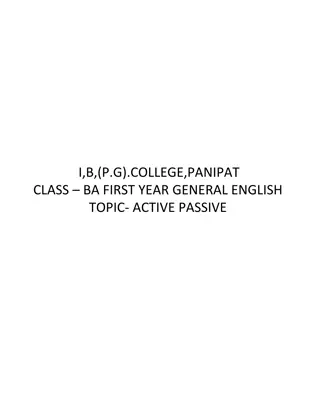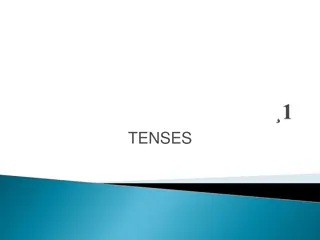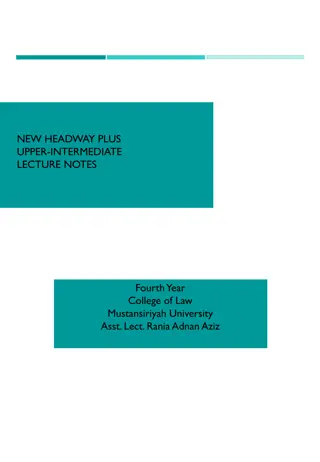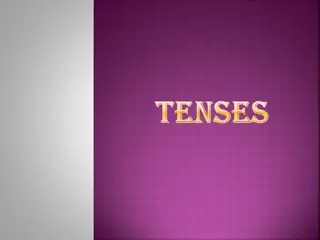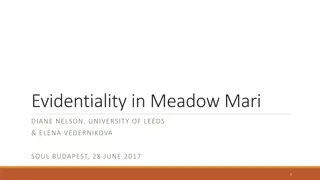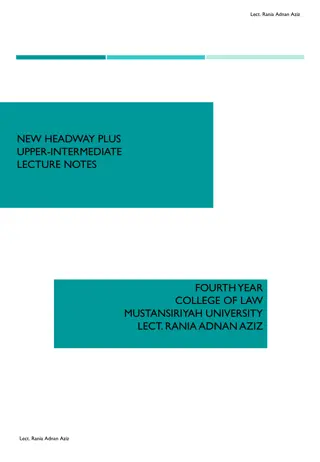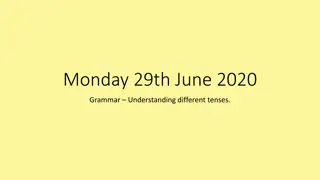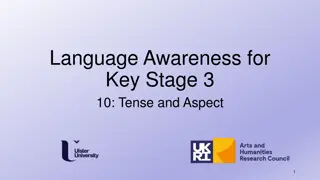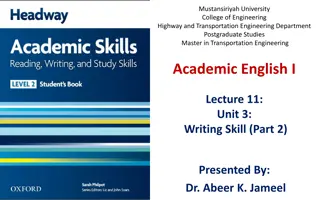Exploring Present Perfect Tenses in English Language Learning
In this educational material, students delve into the intricacies of the present perfect simple and present perfect continuous tenses through engaging dialogues and grammar explanations. The content includes examples, exercises, and visuals to aid in understanding the formation and usage of these tenses, fostering a deeper comprehension of English grammar concepts.
Download Presentation

Please find below an Image/Link to download the presentation.
The content on the website is provided AS IS for your information and personal use only. It may not be sold, licensed, or shared on other websites without obtaining consent from the author. Download presentation by click this link. If you encounter any issues during the download, it is possible that the publisher has removed the file from their server.
E N D
Presentation Transcript
New English File, Upper- intermediate Esperanza Anido Calvo Fachdidaktik II, Hansj rg Perino 1
Unit 1 Unit 1 You re the doctor! the doctor! Grammar: Present perfect (simple and continuous) You re 2
2) Doctor: You look exhausted! Patient: Yes. I ve been running after a cat the whole morning. Doctor: After a cat? Patient: Yes, I think I m a dog, doctor. Doctor: I see. How long has this been going on for? Patient: Since I was a little puppy. Doctor: OK. Just lie down here on the couch and we ll talk about it. Patient: I can t! Doctor: Why not? Patient: I m not allowed on the furniture. 1) Patient: Doctor, my son has swallowed my pen, what should I do? Doctor: Use a pencil until I get there. 3) Patient: Have they sent you the results of my tests yet? Doctor: Yes. The news isn t good, I m afraid. Patient: How long have I got to live, doctor? Doctor: Ten Patient: Ten WHAT? Months? Weeks? Doctor: Nine, eight, seven, six 3
Ask the students to look for/at the new feature and try to come up with a hypothesis as to how it differs from what we have learnt so far (inductive approach?). 4
1) Patient: Doctor, my son has swallowed my pen, what should I do? Doctor: Use a pencil until I get there. 2) Doctor: You look exhausted! Patient: Yes. I ve been running after a cat the whole morning. Doctor: After a cat? Patient: Yes, I think I m a dog, doctor. Doctor: I see. How long has this been going on for? Patient: Since I was a little puppy. Doctor: OK. Just lie down here on the couch and we ll talk about it. Patient: I can t! Doctor: Why not? Patient: I m not allowed on the furniture. 3) Patient: Have they sent you the results of my tests yet? Doctor: Yes. The news isn t good, I m afraid. Patient: How long have I got* to live, doctor? Doctor: Ten Patient: Ten WHAT? Months? Weeks? Doctor: Nine, eight, seven, six 5
Introduce grammar rule on how the present perfect simple is formed: (auxiliary) have/has + past participle (past participle of regular verbs ends in -ed, just as in past simple) * discuss: this is not present perfect; what is the difference between to have & to have got? (keyword: possession, BE, etc.) Present grammar rule on how the present perfect continuous is formed: have/has + been + present participle (ing-form) 6
Contrast the two tenses Present Perfect Simple: have/has + past participle Present Perfect Continuous: have/has + been + present participle expresses an action that is still going on or that stopped recently, but has an influence on the now. In this tense, the focus lies on the result. is viewed as part of the present time as it has a strong reference to the now. In this tense, the focus lies on the action. Tip: Focus on the word continuous indicates the difference between the focus both tenses have. 7
Present Perfect Simple: Puts emphasis on the result. e.g. She has written five letters. Action that is still going on (with negation?) e.g. School has not started yet. Action that stopped recently. e.g. She has cooked dinner for tonight. Finished action that has influence on the present. e.g. I have lost my key. Action that has taken place once, never or several times before the now . e.g. I have never been to Australia (before). 8
Present Perfect Continuous: Puts emphasis on an action that is still going on. e.g. She has been telling stories all day. A process that has taken place or is still going on and has an effect in the present. e.g. I m very tired. I ve been working all day. Expresses how long certain habits have already existed. e.g. We ve been going to that same restaurant since 2010. 9
As a next step, try to match the forms in the jokes above to their possible uses presented. 10
Summary 11
